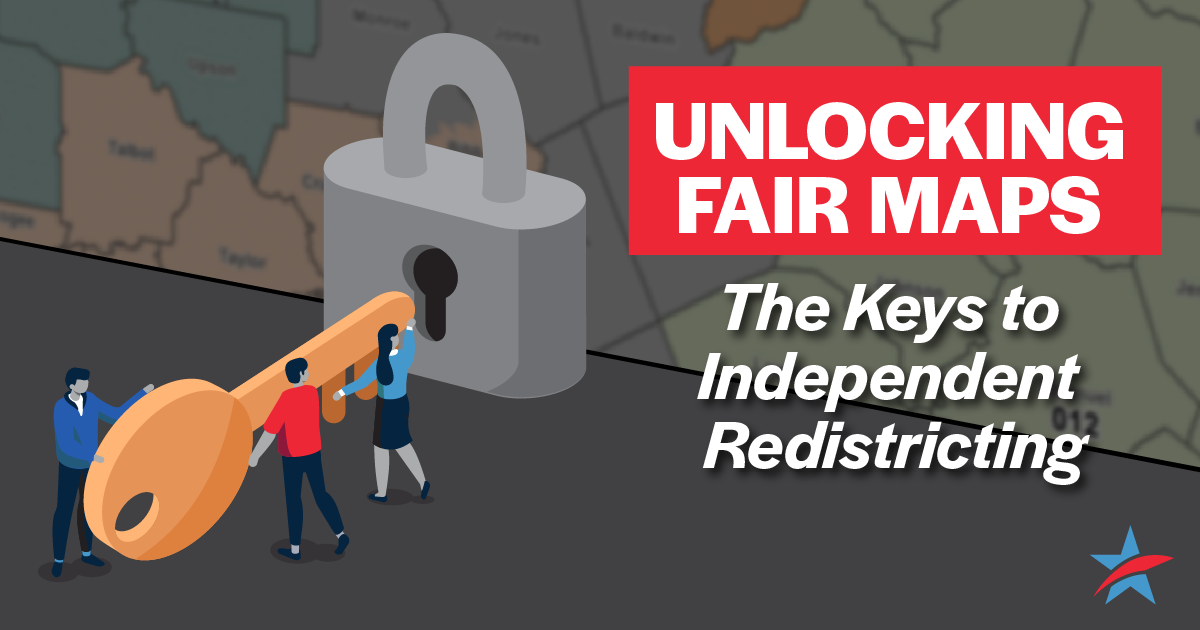Report
Report
Unlocking Fair Maps: The Keys to Independent Redistricting

Redistricting, the redrawing of voting district boundaries, is integral to effective democracy in the United States. Every 10 years following the federal census, the U.S. Constitution requires states and smaller jurisdictions to redraw voting maps by creating districts with equal numbers of residents. This accounts for any population shifts in the prior decade and ensures that communities of the same sizehave the same number of representatives in government.
This process plays a fundamental role in determining the balance of power in Washington, D.C., state capitols, and every other level of government. Because of its importance, redistricting has been subject to gamesmanship and politicization since the founding of our republic.
A solution for this decades-long fight for fair redistricting exists: independent redistricting commissions (IRCs). These multimember and cross-partisan entities have the final authority to draw voting districts every decade instead of allowing politicians to approve maps. Advocates and organizers have been advocating for this solution in city halls and state legislatures, and as ballot initiatives. We know it works because many states and cities in the last few decades have successfully implemented new voting maps using an independent redistricting commission.
This report delves into the considerations advocates and policymakers face when proposing an independent redistricting commission. It describes and assesses the common elements of contemporary commissions. Each section of this report provides sample statutory language from existing jurisdictions, though not every example comes from an IRC. Every IRC should be set up to best serve the needs of your state or locality because there is no one-size-fits-all model for an independent commission. Where possible, we provide recommendations or guidance as to best practices and what to avoid.
“Redistricting is about all about giving power back to voters. ... When politicians— Luis Gonzalez, Commissioner, City of Austin Independent Citizens Redistricting Commission
are trying to draw districts in their favor, [instead of] what’s in the best interest
of their residents or their communities, that is a rooted problem in politics. We
have seen the success [of] city and state level redistricting that when states, cities
have redistricting commissions, they get to focus on issues other than politics or
covenants or election results.”
Related Resources
Report

